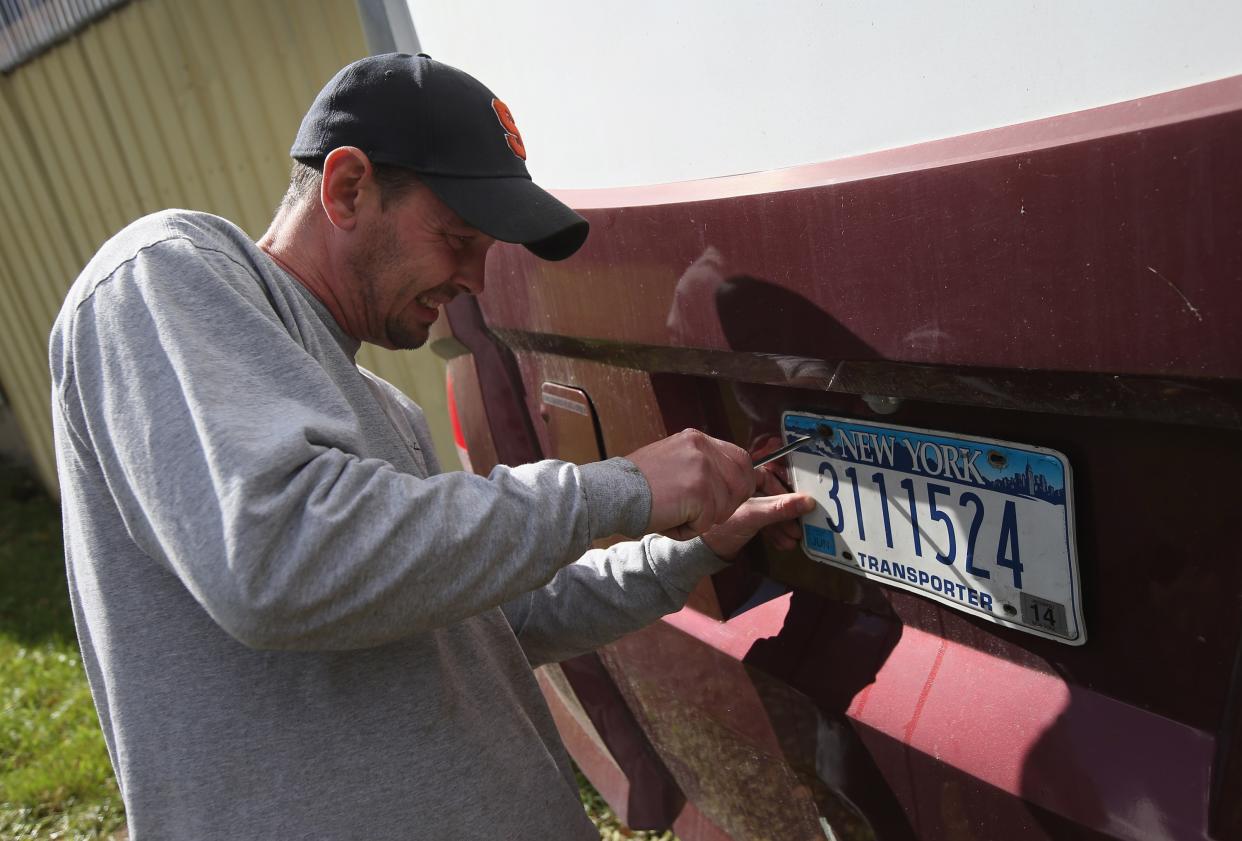Should convicted drunk drivers be labelled with special license plates?

Prince Edward Island is considering a specialized license plate for convicted drunk drivers. Would you agree to this, or do you think this type of branding is unconstitutional?
Thomas Bink: I don’t think it’s a terrible idea. I mean, in B.C. they already have little labels for different drivers – If you’ve got a learner’s permit, you get an L, and if you’re a novice driver, you have to display an N. So why not have labels for all kinds of drivers, like for seniors, handicapped or convicted drunk drivers? Anything that helps educate other drivers upon approach is a good thing, I say. It’s not to brand, belittle or never forgive convicted drunk drivers, but if I see a guy with a D label on his car driving erratically, I’m better alerted to cut a wide berth. And like learners and novices, after a certain amount of time without a conviction the label can be removed.
Matthew Coutts: My first instinct was to jump on board this idea. I consider drunk drivers a scourge, a gaggle of selfish ids willing to do what they want regardless of how it might affect the rest of us. Anything to identify and shame them – and there is an element of shame in this plan – I thought I’d be in favour of. But something about this doesn’t sit right with me. For one, we are not really posting the scarlet letter on the driver. What if someone else – a spouse, perhaps – were to drive the car instead? Their character would be unfairly maligned. And as much as I like to cast a wide net on this topic, there are countless reasons and events that led these people to being in this situation. The public shaming aspect would unfairly paint them all with the same brush. No, I’m in favour of addressing this issue somehow, but not like this. The tool is too blunt for me.
Andy Radia: I'll agree with Tom on this one – I think this is a great idea. In 2011, the Justice Department examined the files of over 3,000 convicted drunk drivers and found that 57 per cent of them re-offended at least once within a five year period. So yes, drivers should be made aware of who these people are when on the road. And I'm not too concerned about shaming or belittling. Repeat offenders deserve that.
Bink: Yeah, I get the whole “scarlet letter” aspect, but like I said, after a few years without a repeat offense – five sounds like a good number – the driver can remove the sticker.
Coutts: I still can’t cosign this plan. There are too many repercussions that could come to these people, who it should be noted have already been punished for their crime. They could be the target of vigilante justice, their cars would be more likely to be vandalized. They could be subject to unlawful police profiling. Just because they drove drunk once doesn’t mean they will be among the 57 per cent who will do it again, but that won’t stop their lives from being unfairly affected by these plates.
Radia: Matt, I would suggest that if Pierre Trudeau was around he'd be calling you a 'bleeding heart.' You mention that these people have already been 'punished' but the re-offence rate is proof that current punishments are not working. More has to be done – especially to repeat offenders. Their lives should be negatively affected by their actions. After all, the lives of 1,000 victims' families are negatively affected every year in drinking and driving related crashes.
Coutts: I can survive being called a few names by Trudeau. And if you want to talk solely about repeat offenders I may be swayed a little further in your direction. But you can’t punish someone because they might re-offend, or because other people have re-offended. If that’s the case, police should just give DUIs to people drinking in bars. Statistically, people who consume alcohol are more likely to drive drunk that people who haven’t consumed alcohol.
Bink: I’m thinking it’s not too dissimilar from communities being notified about a convicted sex offender moving into their area. That person is similarly “branded,” and it’s not an automatic assumption that the person will re-offend – it’s just a notification to the benefit and safety of the community.
So, what do you think? Have your say in the comments area below.

